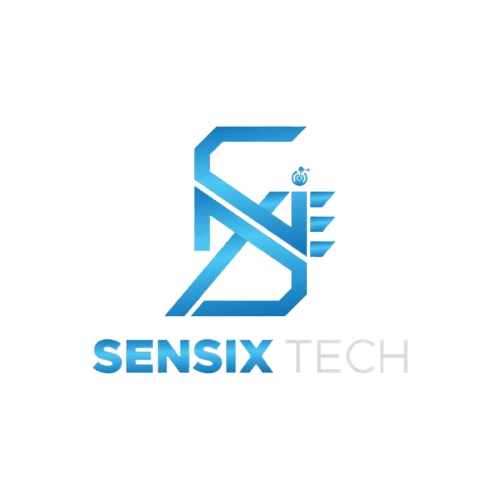The Crucial Role of Software Development in Today’s Digital Landscape
In our technology-driven world, software development is a key driver of innovation, efficiency, and growth across various industries. From mobile apps that simplify daily tasks to complex enterprise solutions managing vast business operations, software development is at the heart of modern technological advancement. Whether you’re new to the field or looking to deepen your understanding, familiarizing yourself with key concepts and terminology is essential.
Key Concepts in Software Development
Software Development Life Cycle (SDLC):
The SDLC is a structured approach to software development, guiding the process from the initial concept to deployment and ongoing maintenance. The key phases include:- Requirement Analysis: Understanding stakeholder needs to define the software’s objectives.
- Design: Crafting detailed architectural blueprints based on the requirements.
- Development: Writing code to build the software according to design specifications.
- Testing: Identifying and fixing bugs to ensure the software meets quality standards.
- Deployment: Releasing the software for end-user access.
- Maintenance: Providing ongoing support, updates, and issue resolution.
Agile Methodology:
Agile is a popular development methodology emphasizing iterative progress, collaboration, and flexibility. Unlike traditional methods like Waterfall, Agile delivers small, incremental improvements through regular iterations. Key concepts within Agile include:- Sprints: Time-boxed cycles (typically 2-4 weeks) focused on completing specific features.
- Scrum: An Agile framework organizing work into sprints, involving roles like Scrum Master and Product Owner.
- Kanban: A visual method for managing workflow, tracking progress, and optimizing efficiency.
DevOps:
DevOps combines development and operations to improve collaboration, streamline processes, and enhance software delivery. Integrating continuous development, integration, and deployment, DevOps fosters faster delivery times, improved quality, and increased efficiency.Version Control:
Version control systems (VCS) track code changes over time, enabling developers to manage revisions, collaborate effectively, and maintain a history of updates. Popular VCS include:- Git: A distributed version control system known for its flexibility and branching capabilities.
- Subversion (SVN): A centralized system managing changes in a single repository.
APIs (Application Programming Interfaces):
APIs allow different software applications to communicate, enabling developers to integrate third-party services into their applications. Examples include payment gateways, social media sharing, and map services.Databases:
Databases store and manage data, categorized into:- Relational Databases: Use SQL to manage structured data organized in tables (e.g., MySQL, PostgreSQL).
- NoSQL Databases: Handle unstructured or semi-structured data with flexible schema designs (e.g., MongoDB, Cassandra).
Front-End vs. Back-End Development
Front-End Development:
Focuses on the user interface (UI) and user experience (UX) of a website or application, using HTML, CSS, and JavaScript to build visually appealing and interactive elements.Back-End Development:
Handles the server-side logic, database interactions, and application functionality, utilizing languages like Python, Ruby, Java, and PHP to ensure smooth data processing and server operations.
How Sensix Tech Can Assist
As a leading web development company in Thane, Sensix Tech offers a comprehensive range of services to support your software development needs:
Tailored Software Solutions:
Sensix Tech delivers customized software solutions that align with your business goals, whether you need a web application, mobile app, or enterprise software.Expertise in Agile Development:
Sensix Tech adopts Agile methodologies to ensure flexibility and adaptability in your projects. By breaking down work into manageable sprints, they provide regular updates and allow for adjustments as needed.DevOps Integration:
Sensix Tech integrates DevOps practices to streamline development and operations, ensuring faster delivery, enhanced quality, and continuous support throughout the software lifecycle.Comprehensive Version Control:
Utilizing advanced version control systems like Git, Sensix Tech ensures efficient code management, smooth collaboration, and a well-organized software project.API Integration:
Sensix Tech excels in API integration, enabling your software to seamlessly incorporate external services, such as payment gateways, social media platforms, and more.Database Management:
Sensix Tech provides robust database solutions, managing both relational and NoSQL databases to meet your specific data requirements and optimize performance.Front-End and Back-End Development:
Sensix Tech offers end-to-end development services, ensuring a cohesive, functional application with an intuitive UI and reliable back-end systems.Ongoing Support and Maintenance:
Post-launch, Sensix Tech provides ongoing maintenance and support, ensuring your software remains secure, up-to-date, and fully operational.
Conclusion
Understanding the key concepts and terminology in software development is crucial for success in the tech industry. Whether you’re navigating the SDLC, adopting Agile methodologies, or managing version control and API integrations, these concepts are fundamental to successful software projects.
As a trusted web development company in Thane, Sensix Tech is committed to helping businesses achieve their software development goals. By offering tailored solutions, leveraging Agile and DevOps practices, and providing comprehensive support, Sensix Tech empowers businesses to unlock the full potential of software development and drive innovation.
Whether you’re starting a new project or optimizing existing systems, Sensix Tech is your partner in transforming ideas into cutting-edge software solutions that set your business on the path to success.

